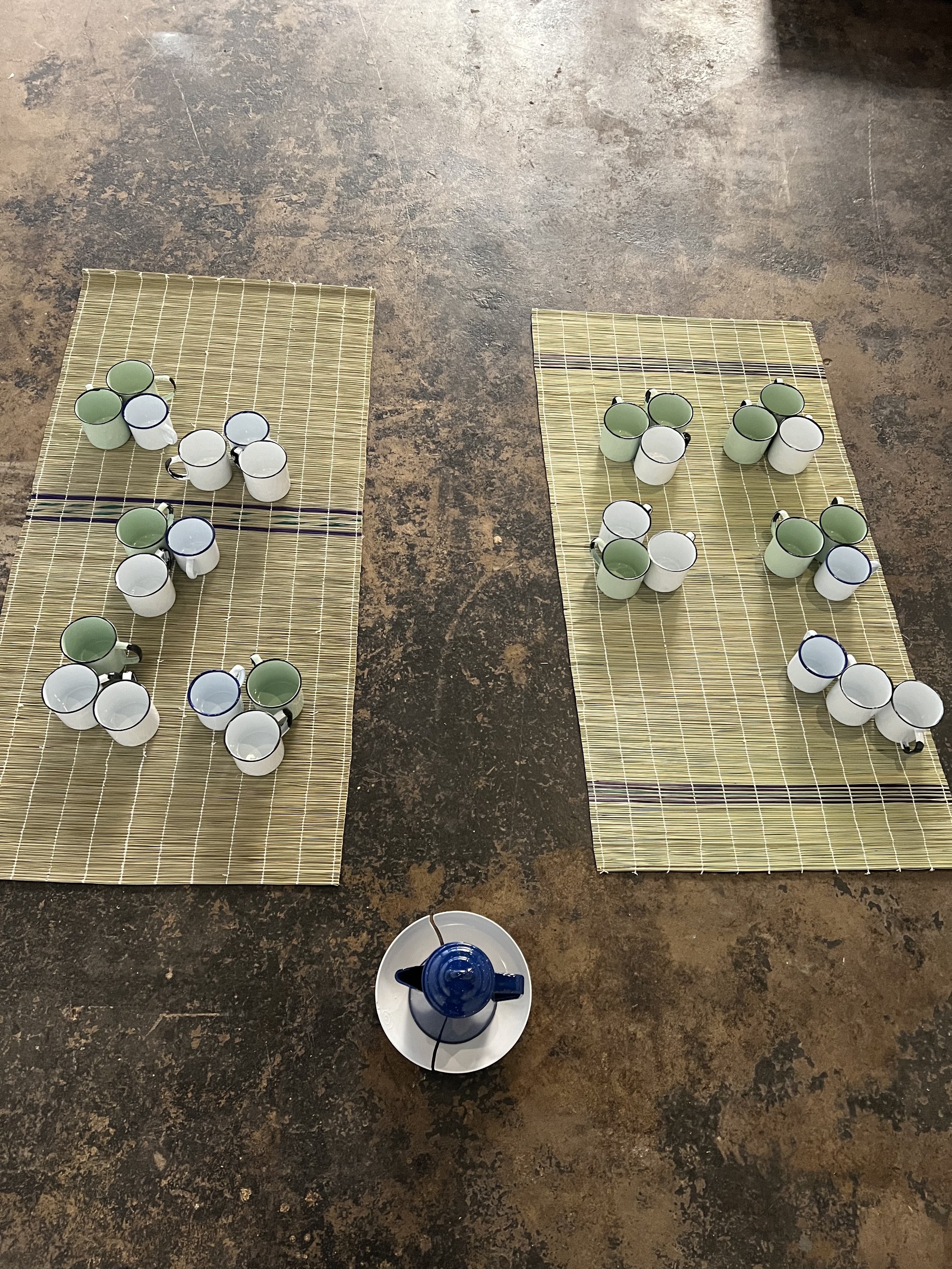Maphuti Mabotja
Bakone: Practice(s) of Homing
This work is a reflective experiment navigating cultural practice(s) of homing - to evoke a feeling of home when home is no longer a location that is accessible - and explores how engaging in certain spiritual practices may enable one to manifest a somatic feeling of home.
Ancestral veneration is an intimate practice of connecting to your ancestors by performing various acts that pay them homage. This installation positions the shrine/altar as a space where ancestral veneration can be performed or practised, a tangible place of reflection and refuge; a shared home. An offering of tea at the altar signifies a gesture of reverence to the ancestors, in appreciation of their ongoing protection.
Sereto sa Bakone is a Pedi clan praise poem for all family names that belong to the Bakone clan, and its recitation is deeply rooted in feelings of nostalgia passed down to Bakone descendants. The poem is integral to rituals connected to ancestral veneration, to activate the altar, enabling the ancestors to recognise you, hence the poem’s opening greeting, ‘Thobela, Bakone!’.
The praise poem includes stories about Moletjie, the ancestral land of the Bakone, functioning as a requiem both to the land and the people that once occupied it. Through this acknowledgement of the land and the people, the reciter awakens or manifests home, allowing the Mokone descendant to inherit these memories.
As a Mokone grandchild with no access to the physical home of the Bakone ancestors, I write my own sereto (poem) - a conversation between myself and my ancestors, tackling feelings of estrangement, dissociation with the mother tongue (SePedi), and addressing the complexities of preserving these homing practices.
Praise Poem, Performance, Installation 2022









